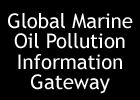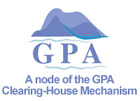The
main sources of input of oil from land-based sources to the
marine environment are
- untreated
or insufficiently treated municipal sewage and stormwater
— urban runoff — from cars, machinery, spills
at filling stations and garages, flushed-out residues of
lubricants, etc. The stormwater contains waterborne and
airborne pollutants; everything that is flushed onto or
falls down upon the hard surface will become constituents
of the contaminated stormwater: car exhausts, particles
from worn tyres, small spills of oil from engines of different
vehicles, small oil spills from garages, workshops, residues
of oils and lubricants that we want to get rid of.
- untreated
or insufficiently treated waste water or stormwater from
various coastal facilities: coastal industries, coastal
refineries, coastal oil storage facilities, oil terminals,
and reception facilities. Untreated stormwater from ports,
refineries, oil storage facilities, oil terminals etc. especially
oil terminals, has a high oil content that originates from
valves, pumps, loading ramps for vehicles, quays, etc.
- untreated
waste water and residues discharged directly into rivers
and with the rivers to the sea.
There is this constant, diffuse input of oil pollution from
land-based sources. It is difficult to blame anyone in particular
for the continuous"leakage" of oil from streets
and rivers, like the large-scale marine "recreational"
oil pollution caused by pleasure craft, because the blame
falls on each and everyone of us. Consequently,
a lot of oil goes literally down the drain from our towns
and cities into the sea — either through a municipal
sewage treatment plant, where it will harm the treatment process,
or more or less untreated. When streets, roofs, handling areas
in ports, and other hard surfaces are washed by rain and snow,
the resulting waste water (stormwater) is flushed into the
general sewer system or into storm drains along roadsides.
If the sewage treatment is adequate, the stormwater and municipal
sewage will both be treated. If no treatment plant exists,
or treatment facilities are inadequate, the sewage, including
the stormwater, will be discharged into the sea more or less
uncleaned.
The
first step is to locate and identify the many, many sources
on land. The second step is to close those sources and thus
prevent oils (hydrocarbons) to reach the marine environment
through sewage, stormwater, industrial waste water, exhaust
gases and rivers.
POSSIBLE
NATIONAL AND REGIONAL MEASURES
The
objective of the UNEP GPA in relation
to oils is to prevent, reduce and/or eliminate emissions and
discharges from human activities in order to prevent, reduce
and eliminate pollution caused by oil.
National
actions, policies and measures
- Development,
compilation and maintenance of inventories of significant
sources of oils, and subsequent assessment and establishment
of areas (geographic or substance) for action. They should
also, where appropriate, take into account inputs from long-range
transport of these pollutants;
- Development
of comprehensive national programmes of action for the reduction
and/or elimination of priority emissions and discharges
from anthropogenic sources could include:
- Targets,
timetables, and sector-specific measures respecting
the precautionary principle and applying best available
techniques (BAT), best environmental practice (BEP),
and integrated pollution prevention and control (IPPC);
- Fiscal
and economic incentives and measures, including voluntary
agreements, to encourage reductions in emissions and
discharges of oils, to encourage the recycling of used
lubricating oils, and to encourage fuel-use efficiencies;
- The
provision of reception and recycling facilities for
oily wastes;
- Development
of plans and measures to prevent accidental releases
of oils, particularly from coastal refineries, storage
facilities and waste reception facilities and of capacities
to respond to such accidents;
- Establishment
of cleaner production programmes in cooperation with
industry;
- Means
to ensure the effective implementation of the programme
of action;(c) Establishment of environmental monitoring
programmes for oil, including the development of assessment
criteria and the adoption of internationally accepted
quality control and quality assurance procedures;
- Establishment
of environmental monitoring programmes for oil, including
the development of assessment criteria and the adoption
of internationally accepted quality control and quality
assurance procedures;
- Formulation
and implementation of awareness and education campaigns
for the public and industry to gain general recognition
of the need and ways to reduce emissions and discharges
of oil, and, in particular, to further reduce diffuse inputs
through waste systems, including sewerage systems;
- Establishment
of information services for industry on technology and ways
and means to prevent, reduce and eliminate pollution by
oil, including best environmental practice (BEP), best available
techniques (BAT), and integrated pollution prevention and
control (IPPC):
- Promotion
of private initiatives for the establishment and implementation
of systems of internal environmental management within industry.
Regional
actions
- Encouraging
existing regional agreements and programmes of action on
the prevention and elimination of pollution of the marine
and coastal environment from land-based activities, to develop
or continue to develop and implement programmes and measures
to reduce and/or eliminate emissions and discharges of oils
from the appropriate industrial sectors, products and groups
of products;
- Adoption
of programmes and measures on the development of harmonized
assessment criteria and monitoring programmes based on regionally
or internationally agreed quality control and quality assurance
procedures;
- Encouraging
States, including land-locked States, that are not already
parties to regional seas arrangements regarding the protection
of the marine and coastal environment from land-based activities,
to join such cooperation and to cooperate on bilateral and
multilateral basis in the control of pollution from oil;
- Promoting
cooperation on the development of cleaner- production programmes,
best available techniques, and best environmental practice;
- Development
of regional plans and measures to prevent accidental releases
of oils, and development of regional capacities to respond
to such accidents;
- Where
appropriate, the provision of regional reception and recycling
facilities for oily wastes.
COASTAL
FACILITIES
The
EU has a set of common rules on the permitting of industrial
installations (1996 IPPC
Directive; . IPPC stands for Integrated Pollution Prevention
and Control). In essence, the IPPC Directive is about minimising
pollution from various point sources throughout the European
Union. All installations covered by Annex I of the Directive
are required to obtain an authorisation (permit) from the
authorities in the EU countries. Unless they have a permit,
they are not allowed to operate. The permits must be based
on the concept of Best Available Techniques (or BAT). See
the reference documents.
WHAT
YOU CAN DO
- There
are plenty of things that you as an individual can do —
or rather make sure that you don't do. Become oil-wise!
- As
you can see from the list of land-based sources and activities,
and also from the sea-based sources when it is a matter
of recreational boating, individuals and households can
certainly contribute to the important efforts to minimize
the input of hydrocarbons/oils to the marine environment.
- Be
very careful with what you do with oil-containing waste
from your household. Don't flush it in the sewers or pour
it into the storm sewer systems — street gutters and
storm water systems still often drain directly to lake,
streams, rivers, and wetlands. Clean up spilled oil on the
ground and don't hose it into the street, where they can
eventually reach local streams and lakes.
- If
you are in charge of a workplace where oil products are
handled, either as the main activity or as part of other
activities, introduce routines for recovering, storing and
disposing of used oils and other residues in a safe and
environmentally-friendly way. Out of sight might be out
of mind, but the oil you pour into sewers and storm water
systems will not disappear, only cause damage somewhere
else.
- Leave
used engine oil for recycling. If your community doesn't
supply services for recovery and recycling, find other ways
of at least storing the used oil in a safe place instead
of pouring it into sewers or street gutters.
- If
you have a motor boat (leisure craft) with a two-strike
engine, replace that engine with a four-stroke engine! As
you can see from the list of sea-based sources of oil to
the marine environment, two-strike engines are quite terrible
in that respect.
- Reduce
your private consumption of fossil fuels, including oils,
by using collective means of transportation whenever possible.
If you have a car, be careful with maintenance (older cars
do not necessarily have to drib and drab oil on streets,
or "burn oil" instead of petrol/gas).
- Learn
more about all the places and activities in everyday life
where oil products are handled and used. The more you know
about all the possible land-based and sea-based sources
of oil, and how easily oil actually enters the marine environment
because of ignorance or negligence, the more you can also
see ways of avoiding pollution — and guide other people
to do the right thing.
|


